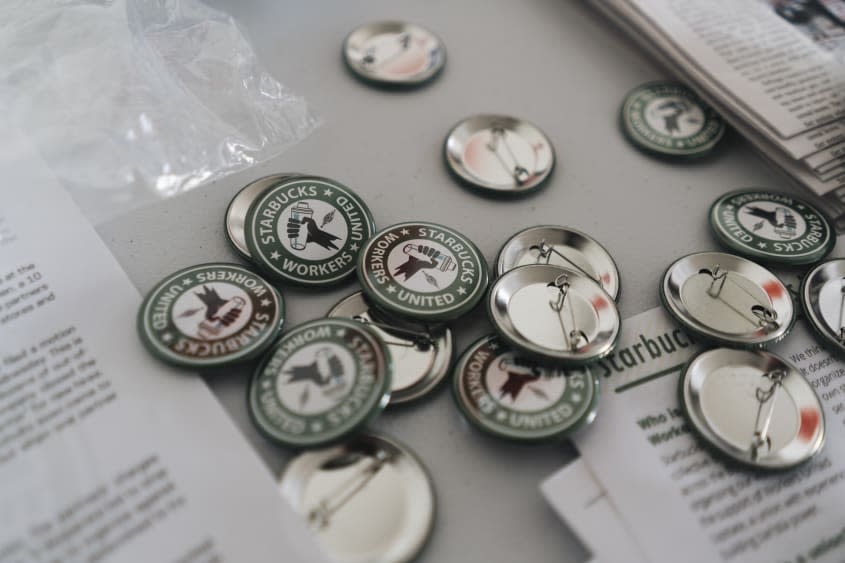Starbucks: Baristas take up the union fight

- Oops!Something went wrong.Please try again later.
The smartest insight and analysis, from all perspectives, rounded up from around the web:
Starbucks founder Howard Schultz used to be considered "one of the nation's most progressive CEOs," said Andy Serwer and Dylan Croll in Yahoo Finance. Under his stewardship, the coffee giant installed "some of the most generous benefits and work policies of any company in America," including health care, company stock options, and free college tuition. But its pro-worker reputation is being tested. After a trying pandemic, many baristas are demanding better pay, stronger safety precautions, and "a voice at the table." Since December, workers have voted to unionize at 210 of the company's 9,000 U.S. stores. Schultz, who returned to serve as the company's interim CEO since April, is now under fire for "behaving unethically and even illegally" when it comes to staunching the activity. It's turned Starbucks into "the poster child for anti-unionism." That's quite a mess to sort out for Schultz and his announced successor, Laxman Narasimhan, who will become CEO in 2023.
Schultz is behaving like "Andrew Carnegie with an espresso machine," said Hamilton Nolan in The Guardian. Starbucks famously refers to its employees as "partners." Really? The National Labor Relations Board had to sanction the company for withholding raises and other benefits from its newly unionized workers. It has also been accused of "firing 85 workers for organizing" and closing stores that were recently unionized. Starbucks Workers United represents "a new breed of organized labor," said Taylor Nicole Rogers in the Financial Times. Instead of aligning with a larger, sector-specific union, Starbucks employees are "forming smaller groups led by workers on a store-by-store basis." Labor leaders are looking at Starbucks as "a crucial test of whether these nascent unions hold the key to reviving" a wider movement.
The numbers tell a different story, said John Stossel in Reason. Despite "media hype," union membership is down by half a million workers since 2019. Some polls suggest support for unions is on the rise, but that's also misleading, said Jeff Jacoby in The Boston Globe. "A new Gallup poll found that 71 percent of Americans say they approve of unions, the highest level recorded since 1965." That's great, but does it add up to more workers actually joining them? Hardly. Among non-governmental employees, only 6.1 percent now belong to unions.
Yes, said Steven Greenhouse in The Washington Post, "corporate executives who insist that workers don't want unions" often remind us that membership has declined precipitously. But those numbers don't reflect how the pandemic has changed young workers' minds, or the surge in efforts led by younger, educated workers. "Undergraduates who work in college dining halls and libraries have flocked to labor's banner." The pandemic has also played an outsize role. "Many frontline workers, whether supermarket cashiers, bus drivers, health-care workers, meat-packers, or fast-food cooks, risked their lives day after day." They're furious at the treatment they got from employers. Unions are coming back — with a vengeance.
This article was first published in the latest issue of The Week magazine. If you want to read more like it, you can try six risk-free issues of the magazine here.
You may also like
Steven Spielberg's The Fabelmans gets a key boost in the 2023 Best Picture race
Stray kitten inspires company to redesign its packaging for the better

